“Even as [the writer] shrinks from it, the world graduates to runaway first person. Blogs, mashups, reality programming, court TV, chat shows, chat rooms, chat cafes, capital campaigns, catalog copy, even war-zone journalism all turn confessional. Feelings are the new acts. Memoir is the new history. Tell-alls are the new news.”
Once a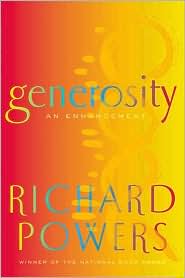 gain, Richard Powers has emerged with a new novel which reinvigorates the whole concept of the “novel of ideas.” Powers, who was a physics major at the University of Illinois until he took an honors literature seminar with Robert Schneider, who convinced him that that “literature was the “perfect place for someone who wanted the aerial view,” has written yet another intellectual novel, based on neuroscience but defying facile categorization into genres. In some respects GENEROSITY is a social satire, and in some respects it verges on science-fiction, but it also incorporates elements of metafiction, and its intellectual focus keeps the reader on his/her toes as Powers develops and expands themes and plot lines about the human genome that are both fascinating and original.
gain, Richard Powers has emerged with a new novel which reinvigorates the whole concept of the “novel of ideas.” Powers, who was a physics major at the University of Illinois until he took an honors literature seminar with Robert Schneider, who convinced him that that “literature was the “perfect place for someone who wanted the aerial view,” has written yet another intellectual novel, based on neuroscience but defying facile categorization into genres. In some respects GENEROSITY is a social satire, and in some respects it verges on science-fiction, but it also incorporates elements of metafiction, and its intellectual focus keeps the reader on his/her toes as Powers develops and expands themes and plot lines about the human genome that are both fascinating and original.
As the novel opens, an unknown speaker, acting as a kind of narrative seer, describes Russell Stone’s first night as an adjunct professor at Mesquakie College of Art in Chicago. Stone is teaching a course in “creative non-fiction,” a genre formerly known as the “personal essay,” and entitled “Journal and Journey.” Russell had been a successful writer of non-fiction articles, but he has lost his nerve in recent years, spooked by the reaction by some of his subjects after his work has bec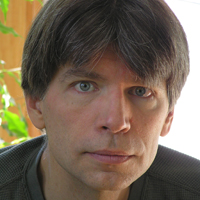 ome public. A dweebish “nice guy,” he never expected that his human interest stories might offend some of his subjects or their families and return to haunt him over the years. In his defeated response to the personal criticism, he has sought work on a community newspaper and on a website for which he edits and improves the grammar in the “personal stories” submitted by readers to the site. He has no interest in personal fame or publicity.
ome public. A dweebish “nice guy,” he never expected that his human interest stories might offend some of his subjects or their families and return to haunt him over the years. In his defeated response to the personal criticism, he has sought work on a community newspaper and on a website for which he edits and improves the grammar in the “personal stories” submitted by readers to the site. He has no interest in personal fame or publicity.
Russell’s class consists of the usual assortment of art students of various ages with various goals, and, through the information they learn from and about each other as they read their journal entries on successive class meetings, they soon become closer to each other than to the “mister” who teaches the course. Thassadit Amzwar, a twenty-three-year-old Algerian Berber from Kabylie, however, quickly becomes the focus of the entire group for her perennial good humor and upbeat attitudes. Thassa has survived the ongoing Algerian Civil War, which began in 1991, supported by Islamist fundamentalists. An entry in her journal includes the discovery of her father’s executed body after he wrote a letter to the newspaper challenging governmental policies, and it shocks the class, but it is her own unconquerable good humor which leaves the longest-lasting impression on her classmates.
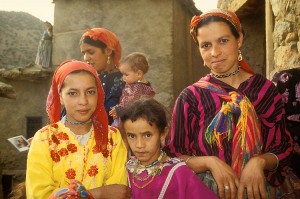 At the same time that Thassa is charming and winning her classmates with an optimism that cannot be quenched, Thomas Kurton, a pure scientist studying the human genome is investigating the chemistry that underlies emotions and the genome which may be responsible for human happiness. Kurton, who is fifty-seven and looks thirty-two, also believes that “aging is not just a disease; it’s the mother of all maladies. And humankind may finally have a shot at curing it.” The concept of deliberately “adjusting” the genome to produce happier, longer-living people with less disease, drives him relentlessly. Tonia Schiff, the TV film-producer of “The Genie and the Genome” who is regarded as “America’s most irreverent science television journalist,” often features Kurton on her programs, “humanizing” him so that non-scientific viewers can identify with his discoveries. When Russell Stone begins to wonder if Thassa’s constant cheerfulness can be a sign of mental illness, he contacts Candace Weld, an on-call college counselor, for insights.
At the same time that Thassa is charming and winning her classmates with an optimism that cannot be quenched, Thomas Kurton, a pure scientist studying the human genome is investigating the chemistry that underlies emotions and the genome which may be responsible for human happiness. Kurton, who is fifty-seven and looks thirty-two, also believes that “aging is not just a disease; it’s the mother of all maladies. And humankind may finally have a shot at curing it.” The concept of deliberately “adjusting” the genome to produce happier, longer-living people with less disease, drives him relentlessly. Tonia Schiff, the TV film-producer of “The Genie and the Genome” who is regarded as “America’s most irreverent science television journalist,” often features Kurton on her programs, “humanizing” him so that non-scientific viewers can identify with his discoveries. When Russell Stone begins to wonder if Thassa’s constant cheerfulness can be a sign of mental illness, he contacts Candace Weld, an on-call college counselor, for insights.
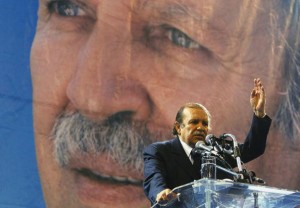
These three main plot lines begin to converge when Kurton hears about Thassa and wants to map her genes, looking for the “happiness gene” which she, more than anyone else he’s ever known, may actually have. The resulting publicity and the attendant lack of privacy, when the press and the internet begin to focus nonstop media attention on Thassa, culminates with her interview on the “Oona Show,” a brilliantly written take-off of the Oprah Winfrey Show which changes Thassa’s life. “Don’t people have anything real to concern themselves with?” Thassa asks. Candace Weld, the psychologist, becomes an anchor for Thassa–and for Russell—during the turmoil.
Powers writes a cerebral and challenging novel which incorporates much new science regarding the human genome, and his emphasis on provable data constantly contrasts with the position of Russell Stone who is trying to free the minds of his students to their imaginations and creativity, even as they write non-fiction. The ethical questions that Powers raises regarding the effects of tinkering with the genome, the long term effects on life in general, and how one must redefine reality (and 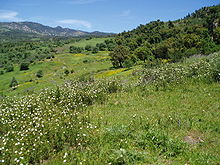 even the arts) in light of that are thought-provoking and get at the heart of the (threatened) values which have endured for thousands of years. Though the characters sometimes give the impression that they have been created specifically to illustrate the non-fictional, scientific points the author wants to develop, and the plot sometimes wanders afield, the novel is both enlightening and absorbing for any reader who is curious about neuroscience. Filled with surprises, twists and turns in the plot, and an ending that is a somewhat predictable tour de force, this unusual and thought-provoking novel is thoroughly entertaining to anyone interested in the cutting edge of scientific investigation into the nature of humanity.
even the arts) in light of that are thought-provoking and get at the heart of the (threatened) values which have endured for thousands of years. Though the characters sometimes give the impression that they have been created specifically to illustrate the non-fictional, scientific points the author wants to develop, and the plot sometimes wanders afield, the novel is both enlightening and absorbing for any reader who is curious about neuroscience. Filled with surprises, twists and turns in the plot, and an ending that is a somewhat predictable tour de force, this unusual and thought-provoking novel is thoroughly entertaining to anyone interested in the cutting edge of scientific investigation into the nature of humanity.
Notes: The author’s photo appears on the site for the University of Illinois Urbana Champaign, where he is university writer-in-residence. http://creativewriting.english.illinois.edu
A photo of Berber women, like Thassa, appears on this anthropological blog: http://mathildasanthropologyblog.wordpress.com
In the elections of 1999, Abdelaziz Boutiflika, the candidate supported by the military in Algeria, was elected President. He won a second term in 2004, and after changing the constitution, won a third term in 2009. His photo, and much more information about him, appear here: http://www.algeria.com
A description of the Kabylie people appears on this site: http://www.joshuaproject.net
Kabylie’s hills appear on http://en.wikipedia.org
